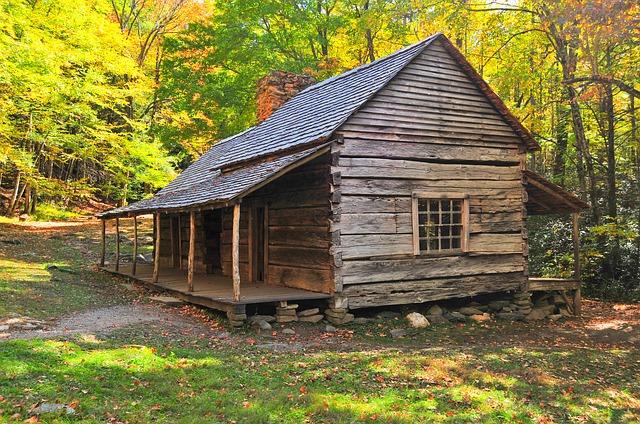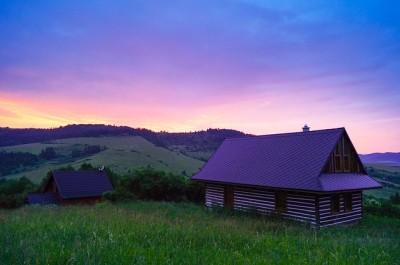Previously on Off The Grid News, we the five biggest challenges to moving off-grid.
So now you’ve successfully faced the challenges to moving off-grid. You’ve found a place with enough land and water and have an off-grid power source. You’re comfortable with other people that may be living nearby, and are ready to live on your new homestead. For those with the homestead up and running, here are the five biggest challenges to living off-grid.
1. The dark hours
Many off-the-grid homes have limited power and are located in the north, where winter nights are long. So you can go a little stir crazy if you’re sitting in a dark house on those long winter evenings. Called “cabin fever” or “winter malaise,” symptoms include being irritable, lethargic and unmotivated. Cabin fever is real, and millions of Americans suffer from it during the winter.
So be prepared for this and plan on activities and hobbies that can help keep your mind fresh and your attitude positive. Here are some tips for minimizing the effects …
Get Free Backup Electricity — That Works Even During Blackouts!
First, choose one of the many relaxation techniques that help reduce stress and anxiety. A simple breathing exercise is fine.
Second, avoid the mistake that millions of Americans, Russians, Scandinavians and others that live in worlds with cold and dark winters make – drinking too much alcohol. Health impacts aside, abuse can make relaxing and sleeping soundly much harder.
Third, invite friends or neighbors over. Simple interaction, whether over a meal or while playing a game, provides comfort and helps ease anxiety. It may not be easy – cabin fever can make you want to avoid contact with others – but it may be just the thing you need.Variation of diet
2. Variation of diet
Many off-the-gridders incorporate as much self-sufficiency as possible when it comes to food. A robust garden and source of meat, whether from small animals or larger livestock such as pigs or cattle, can provide most of the food a family needs. But smaller homesteads can be limited in variety. For example, the winter pantry may store potatoes, squash, onions and a few canned goods. And many homesteads have one source of meat, such as a flock of chickens or a few rabbits.
Eating the same food day after day can lead to a reduction in appetite, and frankly is no fun. Instead of enjoying the bounty of your hard work, a diet with little variation can quickly make you dislike the food you’ve worked so hard to produce.
So plan ahead to avoid this. For example, if you raise chickens, look for someone with which to barter. Trading a few chickens and eggs for some rabbits or a side of beef will add to your protein options. Same with the garden. If you’re overflowing with potatoes, maybe you can trade some with a neighbor with fruit trees, so that you can preserve some applesauce or peaches for the winter.
Also, if you can afford it, don’t be afraid to spend a little money to get some variety in your diet. Chances are, you live somewhere that allows you to grow some vegetables, but not others. If you live in the north, splurge on some tropical fruits for variety. Or if you live in the south where it’s too hot to grow raspberries, buy some fresh ones during season. Enjoy them in season and freeze some for a change of pace in the winter.Technical know-how
3. Technical know-how
Some people are mechanical geniuses and can fix anything. If that’s you, skip this section. But if you’re like me, learning to diagnose and repair machinery is a life-long learning process. So get to know the equipment you rely on. Make sure you can sharpen that chain saw blade or replace the spark plugs. If you’re fortunate enough to have a solar power system, understand how to program the inverter or troubleshoot it.
Produce Boiling Hot Water, Anywhere, Anytime With Absolutely No Power Whatsoever…
Regardless of the piece of equipment, understanding it and repairing it are essential to successfully living off-the-grid.Disease diagnosis
4. Disease diagnosis
Equally important to fixing machinery is being able to diagnose and mitigate or cure disease, both in the garden and with animals. Nothing’s worse than some unknown insect destroying your corn crop or having worms show up and suck the life out of your goats. Be ready to understand how to respond if your plants start dying or your animals get sick. This can take a lot of time but at the end of the day, it’s crucial for off-grid living.
5. Health and injury
We’ve already discussed the mental impact of cabin fever, but your physical health is just as important. Living off-the-grid is hard work. Debilitating illness or an extended hospital stay can irretrievable damage the off-the-grid dream.
No one is immune from a serious injury or illness like cancer. But you can take steps to minimize these. The risk of serious injury can be reduced with simple precautions like wearing safety glasses and proper lifting techniques. The risk of illness may be reduced by regular doctor visits and avoiding alcohol or tobacco abuse. The key is to reduce risk.
Final thoughts
Living off the grid is awesome. But it is a lifelong learning process and full of challenges that can test your resolve. Good luck!
What challenges would you add to the list? Share your thoughts in the section below:
 Off The Grid News Better Ideas For Off The Grid Living
Off The Grid News Better Ideas For Off The Grid Living





